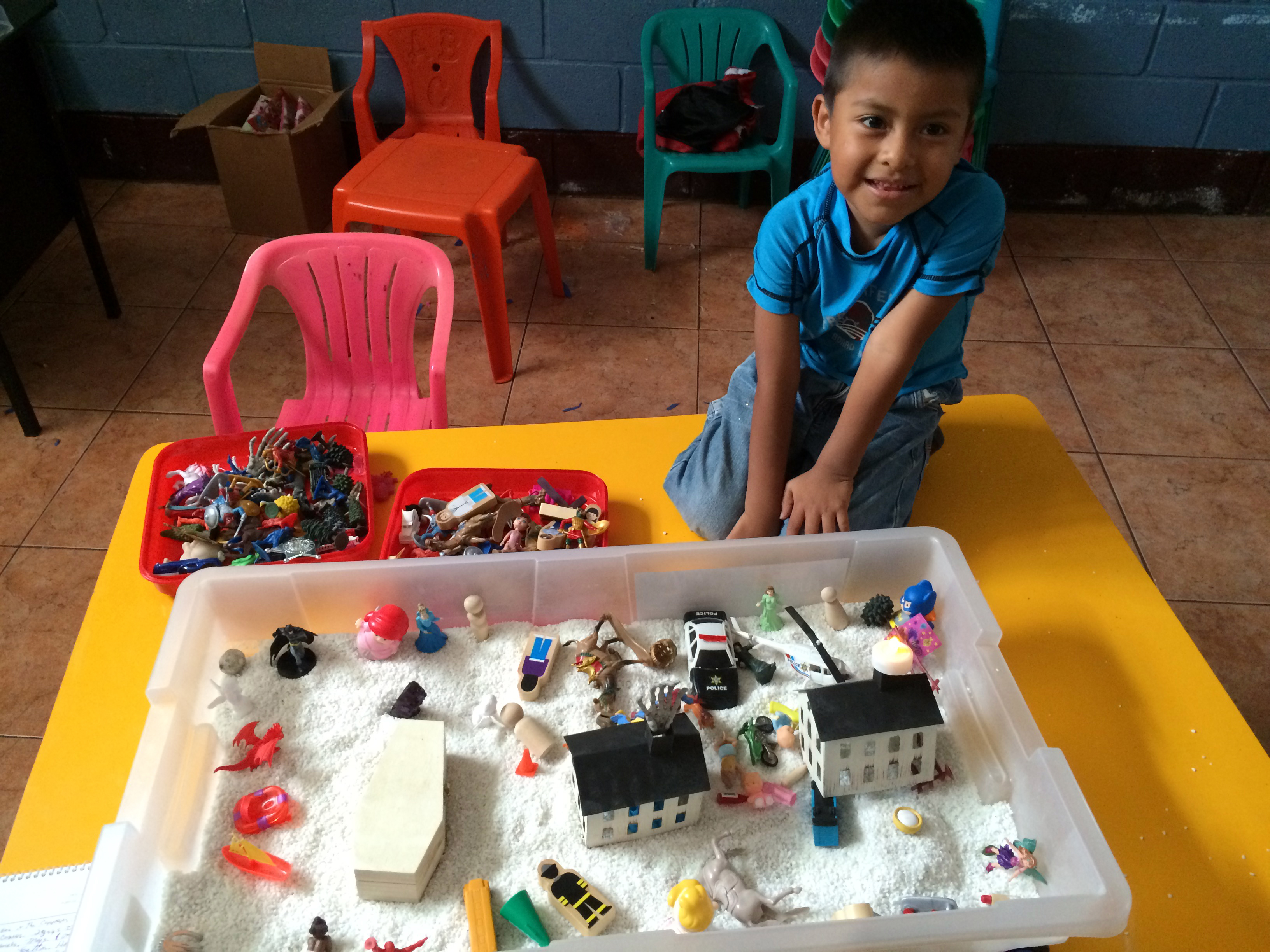Counseling Students, Alumni Use Play Therapy to Help Guatemala Schoolchildren
By Megan Perkins
June 29, 2018

When JBU graduate counseling student Jillian Cirelli approached a frightened young Guatemalan boy and asked him to join her to play, she saw terror on his face as he squatted down in a position of defense. Cirelli recounts, “He was ready to run at any moment, thinking, ‘I don’t know if you’re going to hurt me.’”
Traumatized reactions like this were a common experience for the 11 graduate counseling students, one alumnus, and four faculty members who traveled to Guatemala City, Guatemala last summer.
For nine days the students and faculty spent their time at four different schools. Some worked in Rayitos de Esperanza, a more privileged school in the area, with the others focusing on three separate schools in the La Limonada area — one of the most violent parts of Guatemala City.
While Rayitos de Esperanza is situated in a poverty-stricken neighborhood next to a large city landfill, gang-controlled La Limonada is considered much more dangerous.
“We were told that police don’t go into that neighborhood,” said Dr. Charles Romig, JBU professor of marriage and family therapy and one of the trip’s leaders. The students and faculty were escorted into the schools daily by local officials. Cirelli was warned by local teachers to “be gone by four o’clock … the violence starts at five and doesn’t end until midnight ... someone is killed every day.”
The goal of the team was to minister to the children affected daily by violence and poverty through play therapy, with a particular emphasis on the use of sand tray therapy. Sand tray therapy gets children to play and communicate using figurines in a tray filled with sand.
Will Rivas, ’14 said, “Their sand tray was like their world. Kids at that age can’t just verbally express what they’re feeling; they are able to use the miniatures as their words to communicate a glimpse of their world views.”
Through playing in sand trays, the children expressed the hardships they faced daily. Some of the prominent themes were poverty, abuse and neglect. Frequently, the children gravitated toward playing with miniature houses, communicating their desire for a stable home of their own.
Rivas and Silvia Fernandez, a graduate counseling student also on the trip, were both born in El Salvador during a time of civil war and eventually immigrated to the United States. Rivas and Fernandez said they were especially touched by the children and in a sense felt that they had “returned home.”
“I saw myself in those children,” Fernandez said, “Their living environment reminded me of my own childhood — the way they behave, the games they play.”
The children were also able to express what made them feel safe. The most common responses involved the school, the church and, as Romig described, “some kind of hero or angel-like figure that represented God.” These reactions emphasize the importance of the school system and local churches
In addition to education, the schools provide breakfast and lunch for the children as well as hygienic products such as toothbrushes. For many of the children school may be the only opportunity for them to get the nutrition and care they need.
One of the chief observations of the counseling team was how Guatemala City schools function as a source of encouragement to the impoverished communities they serve. Romig describes the schools as “a real beacon of light and hope.”
The counseling team also spent time with the schoolteachers, training them in play therapy and helping them work through their own secondary trauma caused by daily witnessing the suffering of others.
“How do you cope with day after day seeing what’s going on in these kids’ lives…it’s just heartbreaking,” Romig said.
The team was able to emphasize the importance of depending on their fellow teachers. Cirelli said, “They could see us coming in as counselors and leaning on each other, so they thought that they could do it too.”
The team left Guatemala City with practical training in play therapy and a few hours of clinical experience credit, but more importantly, with humble hearts and encouraged spirits after witnessing the joy of the Guatemalan children despite their circumstances.
“We thought we were going to go share God’s love, but they actually in fact shared it with us,” said Rivas.
The graduate counseling department hopes to have the opportunity to take more teams of students to Guatemala in the future.
Cirelli had one thing to tell any future team members, “These kiddos totally sink into your heart and you will never forget it.”
Photo Gallery

